US, UK, Others Seek To Target Illicit Ship-To-Ship Oil Transfers At Sea

The US, UK, Denmark and others have warned about the booming practice of unregulated ship-to-ship oil transfers at sea, which increase the risk of pollution.

The US, UK, Denmark and others have warned about the booming practice of unregulated ship-to-ship oil transfers at sea, which increase the risk of pollution.
"These transfers undermine the rules-based international order and increase the risk of pollution to nearby coastal States. This threatens global efforts to prevent pollution from ships," the paper submitted to the UN said.
The paper was submitted to United Nations International Maritime Organization (IMO), by the member states ahead of a major marine environment protection committee session in July. It was also backed by Australia, Canada, Spain and Ukraine.
Hundreds of "ghost" tankers, which are not fully regulated, have joined this opaque parallel trade over the past few years, carrying oil from countries hit by Western sanctions and restrictions, including Russia and Iran, whose oil exports have been sanctioned.
The number of incidents last year, including groundings, collisions and near misses involving these ships reached the highest in years, a Reuters investigation showed.
"These risky practices, although under the jurisdiction of a flag state, unjustly expose national and local governments and authorities to paying for response and clean-up costs and compensating victims," the paper said.
Tactics used by such ships include switching off tracking transponders, faking locations and also conducting ship-to-ship (STS) operations at locations outside of authorized transfer zones and sometimes in poor weather to conceal activities.
The paper, which will be discussed at the IMO session, said deceptive shipping practices were also "serious threats to the safety and security of international shipping", including crew members.
The countries recommended that when flag states became aware of such practices, they should step up inspections of those vessels and boost monitoring of activity including around territorial waters.
Reuters Report

Ten months before parliamentary elections in Iran, the ‘reformist’ and centrist factions of the regime are already concerned about an electoral candidate purge.
Hardliners, who packed the parliament in 2020 with help from the Guardian Council, which barred most other candidates, are seen as determined to hold on to power.
There is also near unanimous consensus among non-hardliners that voter turnout will be very low in the absence of competition, at least among regime factions.
Jahanbakhsh Mohebbinia, a former Iranian lawmaker close to ex-Speaker Ali Larijani has accused media outlets close to the Revolutionary Guard (IRGC) of spreading fake news to create an atmosphere of excitement ahead of the upcoming parliamentary election.
Recently IRGC-linked Tasnim news agency spread rumors about former President Hassan Rouhani and former Parliament Speaker Ali Larijani allegedly considering the idea of running for the parliament. However, Larijani issued a terse response, alluding to “purification” efforts by hardliners.
Referring to Iranian ultraconservatives in the parliament, Mohebbinia said, "They are individuals who had no part in the 1979 Islamic revolution but occupied the country's power centers."
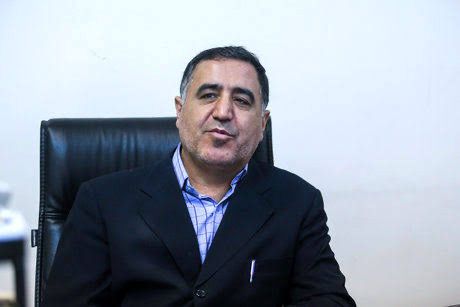
Some Iranian media including Rouydad24 website say there is no election mood in the country, although in the previous rounds of elections unofficial campaigning started more than one year before the election.
Mohebbinia said that hardliners wish to make Larijani angry so that he would make a few controversial comments. He said such methods are "unethical."
"With these news fabrications, Tasnim wishes to ensure a high turnout in the election," said Mohebbinia, adding that "Certainly, the turnout in this round is likely to be as low as the previous election [barely above 20 percent in big cities and around 40 percent in small towns].
Mohebbinia added some moderate conservatives in Iran wish to see Larijani as Iran's next President and Expediency Council member Mohammad Javad Bahonar as the Speaker of the Parliament.
Meanwhile, the leader of the ultraconservative Paydari Party Sadeq Mahsouli told Tasnim news agency: "Our strategy in the upcoming elections is quite clear. We try to elect the best individuals. Currently we are scoring possible candidates and those who score higher will be included in our list of candidates."
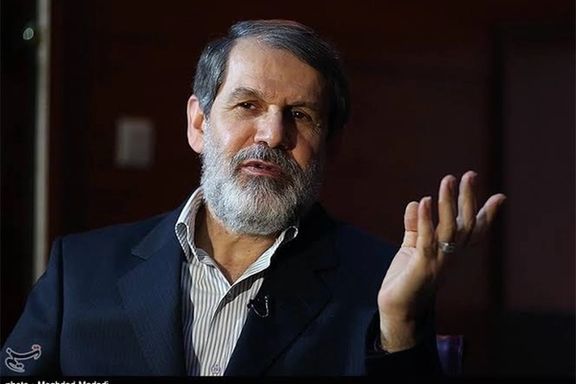
Mahsouli added: "We have our own red lines, and we will not make any compromise. However, we are prepared for cooperation with other political groups who share our values." However, he did not elaborate on those values and red lines.
In the reform front, former Vice President Mohammad Reza Aref said: "We need to make big decisions for the country. There are big lessons for us in the Turkish elections."
Aref who is known for his "strategy of silence" and for speaking in vague terms to protect himself against reactions, possibly meant that Iran should introduce democratic processes in its election system and do away with the arbitrary vetting by the Guardian council, which disqualifies reform-minded candidates. He said, "the state [regime] should value the political elites' qualifications rather than making decisions based on a security approach."
In another development, Hossein Naqashi, a member of the Central Committee of the reformist Unity of Nation Party said that the Guardian Council's approach will do harm to the elections. He warned that Iranians still remember the scars of recent protests and voters may not go to the polls even if there are well-known candidates in the elections.
However, it looks highly unlikely that "well-known individuals" would ever be permitted to run for any election. According to Rouydad24, Iranian Interior Minister Ahmad Vahidi on Tuesday told Mehr news agency that he has ordered government offices to fire, as soon as possible, all the managers appointed by the former government under the relatively moderate President Hassan Rouhani. This looked like what Larijani characterized as purging or purification.

Iranian activist and former political prisoner Shima Babaei has been given the 2023 Geneva Summit's International Women's Rights Award.
This is the third time the award has been given to an Iranian woman, after activists Masih Alinejad and Shaparak Shajarizadeh in previous years.
Presenting the 2023 award, Mayor of Frankfurt, Narges Eskandari said: "It is an honor for me to present this award to Shima Babaei, our Iranian daughter."
Then architecture student Shima became synonymous with the “Girls of Revolution Street” demonstrations held across Iran in 2017.
The women's rights activist openly defied the law requiring women to wear headscarves and stood up for political prisoners. The Iranian police repeatedly summoned, arrested, and jailed Shima.
In late 2018, Shima and her husband, fellow activist Dariush Zand, fled Iran after being charged with "assembling and colluding against national security," "propaganda against the state," and "publishing falsehoods on social media" and facing six years of imminent imprisonment.
Currently residing in Belgium, Shima continues her fight against gender discrimination.
She is now fighting for the release of her father, human rights activist Ebrahim Babaei, whose fate and whereabouts have been unknown since he was forcibly taken into custody by the Iranian authorities in December 2021.
The Geneva Summit for Human Rights and Democracy is sponsored by a coalition of 20 non-governmental organizations. Each year, on the eve of the United Nations Human Rights Council's main annual session, activists from around the world meet to raise international awareness of human rights issues.
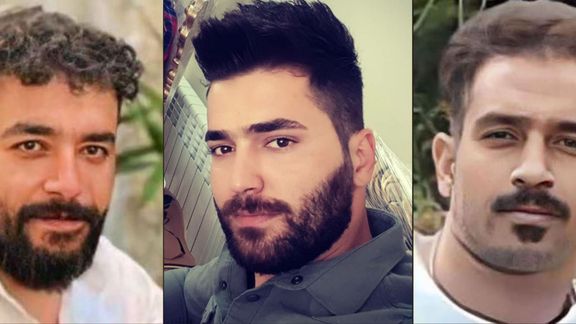
Three political prisoners on death row in Iran have written from jail urging the people to stop their execution.
Saeed Yaqoubi, Saleh Mirhashmi and Majid Kazemi, were convicted over the death of two IRGC’s Basij militia members and a police officer in protests of November last year, in what Persian media have dubbed the ‘Esfahan (Esfahan) House’ case.
Describing themselves as "children of Iran" in the letter, the three prisoners said: "Hello. We ask our dear fellow citizens not to let them kill us. We need your help. We need your support."
Amir Kazemi, Majid's cousin, verified the authenticity of the hand-written letter in an interview with Prague-based Farsi language Radiofarda.
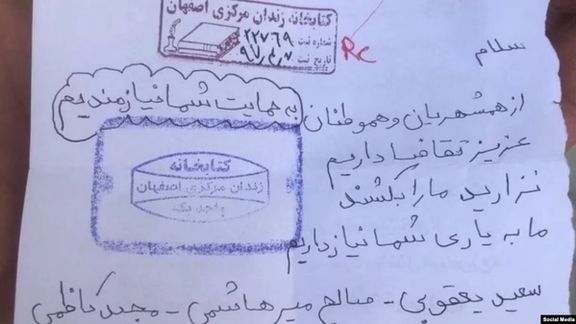
After authorities released videos of three protesters confessing to the killing of three security officers their families expressed concern about their imminent execution.
On Sunday night and again on Wednesday night, people gathered outside Esfahan (Isfahan) Central Prison hoping to stop the feared hangings.
Videos posted by activists show dozens chanting slogans in front of the prison, while gunfire was also heard as thick smoke caused by teargas enveloped the area.
Opposition activists say the death penalty is being used against the Isfahan House three as an intimidation tactic to stop further protests.
Campaigners say the prisoners were tortured into confessions, and there is no reliable evidence against them.
Earlier in the day, Diana Eltahawy, Amnesty International’s Deputy Director for the Middle East and North Africa, called on the international community to take bold action to prevent the execution of the three protesters who were tortured into confessing.
“The shocking manner in which the trial and sentencing of these protesters was fast-tracked through Iran’s judicial system amid the use of torture-tainted ‘confessions’, serious procedural flaws and a lack of evidence is another example of the Iranian authorities’ brazen disregard for the rights to life and fair trial,” she said.
Majid Kazemi said in an audio recording from prison that he was forced to make false self-incriminating statements after interrogators beat him, gave him electric shocks, subjected him to mock executions, and threatened to rape him, execute his brothers and harass his parents.
Iranian expatriate communities plan demonstrations against the executions in cities worldwide on Saturday, May 20.
In a separate development, Iran International has learned that hearings were held for seven people detained during the ‘Women, Life, Liberty’ protests at the Revolutionary and Criminal Courts of Tabriz in the past few days. They were arrested in the city in September and November last year during protests following the death in custody of 22-year-old Mahsa Amini.
The seven -- identified as Pejman Eslami (31), Baqer Taji Ahmadifard (35), Mehdi (Safa) Fanai(41), Alireza Shirdel(33), Amir Ahmadian (21), Anoush Adami (34) and Omid Abdollah-Beigi (35) -- were charged with various crimes such as ‘Moharebeh’ that can lead to a death sentence.
Moharebeh (also transliterated as muharebeh) is an Islamic-Arabic term that in the lexicon of the Iranian regime means "fighting God” or “war against God,” and carries the death penalty. “Corruption on earth” is also another term that carries the death penalty.
According to unconfirmed reports, at least 10 underage protesters are also facing death sentences for the “moharebeh” and “corruption on earth”.
Nationwide protests that erupted after the death of Kurdish Iranian Mahsa Amini on September 16, posed the biggest internal challenge to the Islamic Republic since its establishment in 1979. So far, around 500 civilians have been killed by security forces and at least 20,000 arrested. While many have been released, around 1,500 face criminal charges, and at least 80 detainees face the death sentence.

The Biden administration has proposed to Israel to start “Joint military planning” regarding Iran, Walla news website reported Wednesday.
Quoting three US and Israeli officials, the website said that a few weeks ago the United States proposed the joint effort, but it is not clear whether it pertains only to exchange of information and planning or it also means joint military action.
Israel has not rejected the offer but views the proposal with suspicion as it could be designed to “tie Israel’s hands” in any contingency to attack Iran, in particular its nuclear installations. Israel has reportedly asked Washington for clarifications.
Israeli leaders have repeatedly said that they will not tolerate a nuclear Iran and would take military action to stop it.
The report quoted American officials as saying that there was no hidden agenda in the proposal and Washington simply wanted to give reassurances to Israel regarding the US commitment to security relations.
The Biden administration has also said in recent months that all options are on the table and conducted large military drills with the Israeli Defense Forces in January.
Walla quoted senior US officials as saying that the proposal was made during visits to Israel by the Chief of the Joint Staff, General Mark Milley and US defense secretary Lloyd Austin in early March, as well as by Gen. Eric Korilla, commander of CENTCOM.
The American sources who spoke to Walla said “joint military planning” means that each side will share its plans for various scenarios.

The Islamic Republic’s Revolutionary Guards (IRGC) have made a criminal Iran’s leading drug lord, Iran International can reveal.
Information obtained by Iran International shows how Naji Sharifi-Zindashti and his cartel now dominate the narcotics trade thanks to the support of the government militia.
His extraordinary rise comes despite his having killed a prison guard in Iran and fleeing abroad, only to return with impunity.
Investigative reporter Mojtaba Pourmohsen has uncovered how a recent rise in the number of executions of convicts sentenced to death on drug-related charges is the result of infighting between rival drug cartels with connections within the ranks of the IRGC.
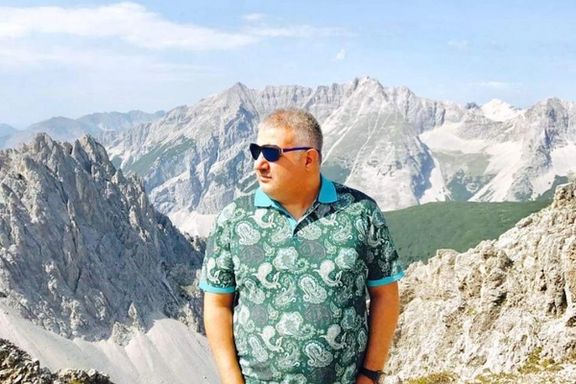
Emerging triumphant from this criminal war, Sharifi-Zindashti and his accomplices – dubbed “The Friends’ Club” – have used the IRGC’s vast reach and control over transit routes and logistics to gain the upper hand in Iran's drug market, according to sources.
The Club comprises senior IRGC officials and high-ranking members of Iran’s Supreme National Security Council as well as managers from Tehran Municipality and members of parliament.
Sharifi-Zindashti not only pays bribes but also supplies opium and heroin for the personal consumption of many of these senior officials.
According to the sources, Sharifi-Zindashti’s gangs traffic more than 20 percent of drugs distributed across Iran and about 35 percent of the drugs pushed in the capital Tehran.
The narcotics that are confiscated and destroyed as part of the Islamic Republic’s regular war on drugs mostly belong to rival gangs.
Iranian police arrested Zindashti in 1996 for a drug deal. Sentenced to death on drug-related charges, Zindashti along with an accomplice killed a guard during transfer to the court to testify in another case. Zindashti fled to Turkey, where he established a drug and human trafficking cartel.

He has since been cooperating with the Islamic Republic’s intelligence agencies in numerous cases, including the abduction in 2020 of Swedish-Iranian Habib Chaab (Asyud), a political activist and former leader of the Arab Struggle Movement for the Liberation of Ahwaz (ASMLA) who was executed earlier in the month.
In December 2020, the Turkish Police arrested 13 members of the Zindashti Cartel on charges of collaboration with Iranian intelligence. According to Turkey's official government news agency, Anatoli, the Iranian Intelligence Ministry had been using the gang to assassinate or abduct Iranian dissidents in Turkey at least since 2015.
Zindashti is also suspected to have been behind the assassination of Iranian dissident Masoud Molavi Vardanjani in Istanbul in November 2019. Molavi-Vardanjani, a former Iranian intelligence operative and a civil engineer by education, fled to Turkey in 2018 and launched a Telegram channel, called Black Box, focused on corruption allegations against Iran’s extraterritorial Qods Force, top officials in the office of Supreme Leader Ali Khamenei, judges and other senior figures.
In 2018 some of the members of the group and Zindashti himself were arrested in Turkey on suspicion of assassinating Saeed Karimian, the founder and head of Gem TV, and other killings related to drug trafficking. They were eventually freed, reportedly as a result of lobbying, bribery and lack of adequate evidence.
After his release Zindashti returned to Iran and despite his convictions for drug trafficking and the killing of a prison guard in the past, Zindashti leads a free life in Iran. In December 2022, he was honored during a ceremony by Iran’s Education Ministry as one of the members of the Charity for School Constructions. He is a benefactor and CEO of Zindashti Star Charitable Institute, constructing shopping malls and schools, yet also a drug lord with links to regime insiders.